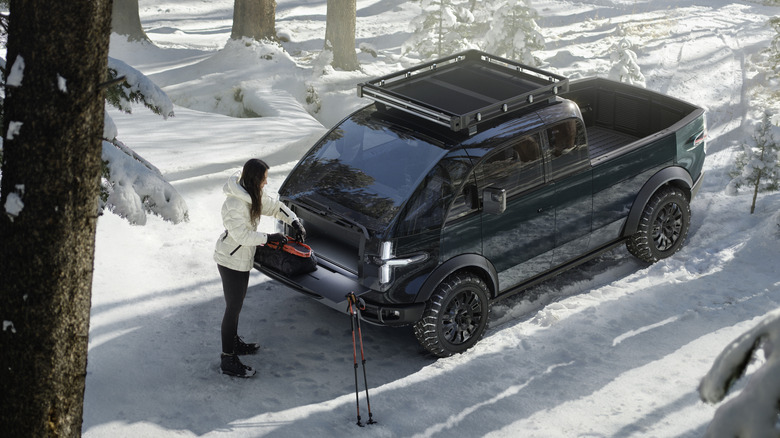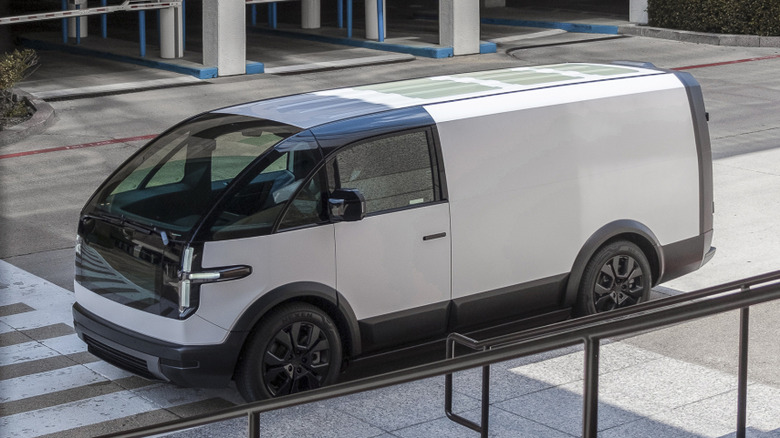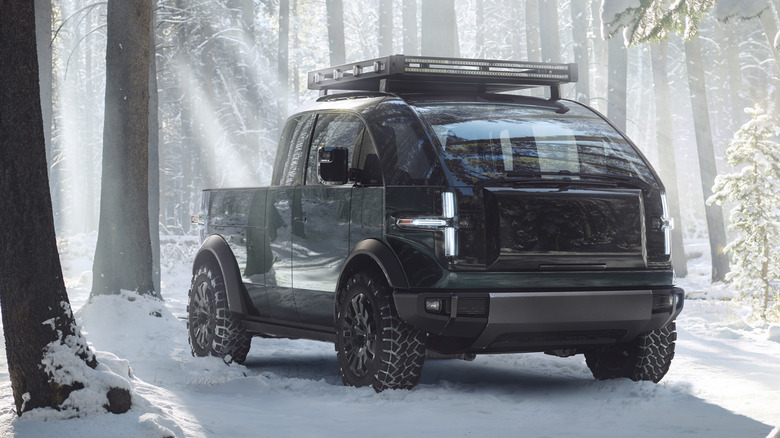Why Canoo Trucks Will Never See The Light Of Day (And How The EV Startup Failed)
Over the decade, numerous EV startups have attempted to enter the electric car market with the hopes of becoming the next Tesla, and they've been met with varying degrees of success. Rivian and Lucid are two that have been more successful at the mission, but even for those more established companies, the sailing has never been entirely smooth when it comes to long-term financial success.
And sadly, most electric vehicle startups haven't even made it that far, including these 10 EV startups, which have already filed for bankruptcy. And now there's another once-ambitious EV company to join that undistinguished list — Canoo, which planned to build electric vans and pickup trucks for both personal and delivery use. But with the company filing for Chapter 7 bankruptcy earlier this year, and its assets set to be liquidated, Canoo has now become one of the latest EV startups to arrive with a lot of buzz, only to fall by the wayside. Let's dig in a little further to see just how far Canoo got, and where it all went wrong.
Canoo made it further than most
Canoo was founded in 2017 and announced its first vehicle plans in 2019 with a boxy, seven-seat electric van that it called the Lifestyle Vehicle. And to show where the industry thinking was at the time, Canoo planned to have the van available via a subscription service rather than a traditional purchase. Subscriptions are something that a lot of carmakers experimented with starting in the late 2010s, but haven't exactly proven popular in the real world.
Around 2020, Canoo started to pivot toward delivery vans and trucks aimed at fleet and government customers, including the United States Army. And compared to some EV startups, whose vehicles never get beyond the rendering or mockup stage, Canoo did end up delivering a small number of prototype delivery vans to customers like the United States Postal Service. Additionally, in 2021, Canoo showed off a cab-over pickup truck based on its existing van platform. With its lack of a "hood" area, the promise was that the Canoo truck could deliver the same passenger and cargo space of a full-size truck, but on a smaller footprint. And had it actually reached production, the Canoo truck would likely have made for a unique alternative to more traditionally shaped EV pickups from Rivian and Ford.
A common fate for EV startups
The problem with any startup, electric vehicle or otherwise, is actually delivering on promises and having enough funding to get those products into mass production. And this is where Canoo, like the others, ran into trouble. It simply ran out of money to even produce any of its vehicles at scale, let alone ever sell them at a profit. Among the reasons Canoo gave for its financial trouble was a lack of support from the U.S. Department of Energy Loan Program Office. In turn, the company attempted to secure additional funding from overseas investors, but again with no success. This ultimately led to the Chapter 7 bankruptcy filing in January 2025.
In the end, Canoo found itself joining Fisker, Lordstown Motors, and others in discovering that just launching a successful electric vehicle company is much easier said than done. Yet, this hasn't stopped others from trying. Slate recently threw its hat into the ring, with ambitious plans to sell an inexpensive, electric pickup truck with a highly customizable design. And so far, the Slate truck has been received quite well. But as Canoo and so many others have shown, positive buzz in the media does not always equal real-world success. Time will tell whether Slate will become the latest EV startup that fails to deliver on its promises, or if it has the financial backing and the genuine customer demand to succeed.


